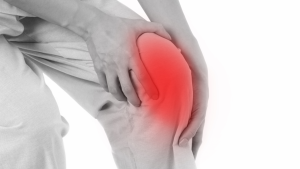Knee pain is a common condition that affects people of all ages. It can be acute or chronic pain, depending on the cause.
Knee pain may be the result of a medical condition or an injury. Minor pain typically responds well to at-home methods of treatments; however, in more serious cases, your physician may recommend interventional procedures.
Causes of Knee Pain

What You Need to Know About Knee Pain?
The causes of knee pain can be divided into three major categories: acute, chronic/overuse, and medical.
Acute knee pain encompasses most injuries such as ligament, meniscal, and broken bones. A direct hit to the bones in the knee can cause the bones to break. Knee fractures are painful and can interfere with the way the knee functions, especially when the kneecap is fractured.
The meniscus, cartilage that acts as the shock absorbers between the bones in the knee, can become injured if twisted while bearing weight.
ACL tears are a common injury to athletes. The ACL is one four ligaments that connects the shinbone to the thigh bone. Injury is often caused by a quick stop and change of direction like in basketball or soccer.
Chronic knee pain, or overuse causes include things like osteoarthritis, tendonitis, and chronic inflammation. Age often contributes to chronic knee pain, as general wear-and-tear on the joints can damage bone and cartilage.
Runners and cyclists often suffer from patellar tendinitis, an inflammation of the tendons which connect the kneecap to the shinbone. It is caused by repetitive motion and by causing stress under the kneecap.
Medical conditions which cause knee pain include gout, autoimmune diseases, and even other mechanical issues. Autoimmune diseases cause inflammation throughout the body, affecting any joint. Gout is a type of arthritis that typically affects the foot, however it can affect other body parts. Flare up can cause severe pain.
When other body parts, such as the foot or hip, are damaged, patients often compensate by walking differently or shifting weight. An altered gait can put more stress on the knee joint.
Treatment Options for Knee Pain
Treatments will vary depending on how severe your pain is and the root cause of your pain.
Medications
In some cases, medication will be prescribed to treat the underlying cause of your pain. These medications are often a form of anti-inflammatory medications to help reduce joint swelling and alleviate pain. If you use over-the-counter medications to regularly treat chronic pain, you should see a physician.
Injections
Joint injections can be used to treat knee pain in certain situations. Corticosteroids reduce arthritis flare-ups and can provide relief for a few months. Platelet-Rich Plasma (PRP) is a concentration of growth factors that helps reduce inflammation and promote healing using the body’s natural abilities.
Physical Therapy
Strengthening muscles that surround the knee can help stabilize the joints, reducing pain. Depending on the condition cause you pain, your physician may recommend physical therapy. Exercises can correct movements that affect your knees and teach good techniques for daily life as well as activities and sports.
Learning to improve flexibility and balance are also important to improving chronic knee pain.
Living with knee pain doesn’t have to prevent you from doing what you love. If you suffer from chronic knee pain, contact the team at Progressive Pain today.

